International
Colombia sees deadliest surge in violence since FARC peace deal
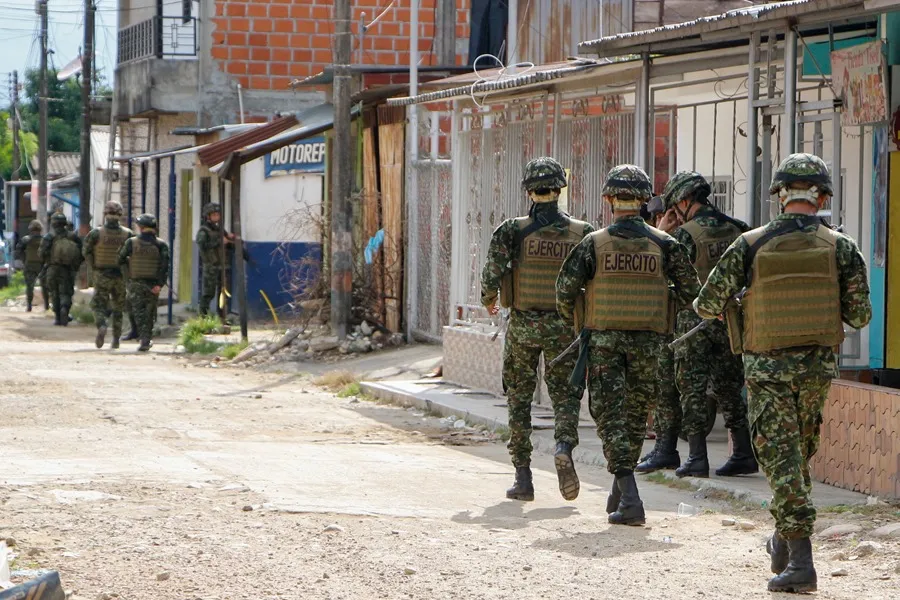
Colombia is experiencing its most intense wave of violence since the signing of the 2016 peace agreement with the now-defunct FARC guerrilla group. Authorities are denouncing a new offensive by rebel factions and drug cartels, reminiscent of the brutal tactics used by infamous drug lord Pablo Escobar during the 1990s, when he waged open war against the state.
“We are deeply concerned by the ongoing violence from armed actors. In just two weeks, 18 members of the security forces have been killed—even during the suspension of military operations against one of the armed groups,” wrote Juanita Goebertus, Americas Director for Human Rights Watch, on social media platform X.
On Sunday, seven soldiers were killed when a military patrol in the conflict-ridden Guaviare department was ambushed and attacked by dissident members of the FARC. Ironically, this group is currently engaged in peace talks with the government.
According to the Ministry of Defense, a total of 47 military personnel have been killed so far this year. Some of them were attacked while off duty.
“They cowardly hide among the civilian population, dress in plain clothes, and launch surprise attacks,” the ministry said in a statement. Authorities are offering a reward equivalent to $48,000 for information leading to the capture of the gunmen responsible.
In response to the surge in violence, Colombia’s Inspector General’s Office has requested a report from the Defense Ministry on the “systematic acts of violence” against security forces.
President Gustavo Petro’s leftist government has ramped up its offensive against armed groups and recently appointed a military figure to head the Ministry of Defense, as several peace processes have stalled or collapsed.
On Friday, Interior Minister Armando Benedetti publicly admitted that Petro’s peace strategy “has not gone well.”
International
Conclave to choose pope Francis’ successor could begin in early may
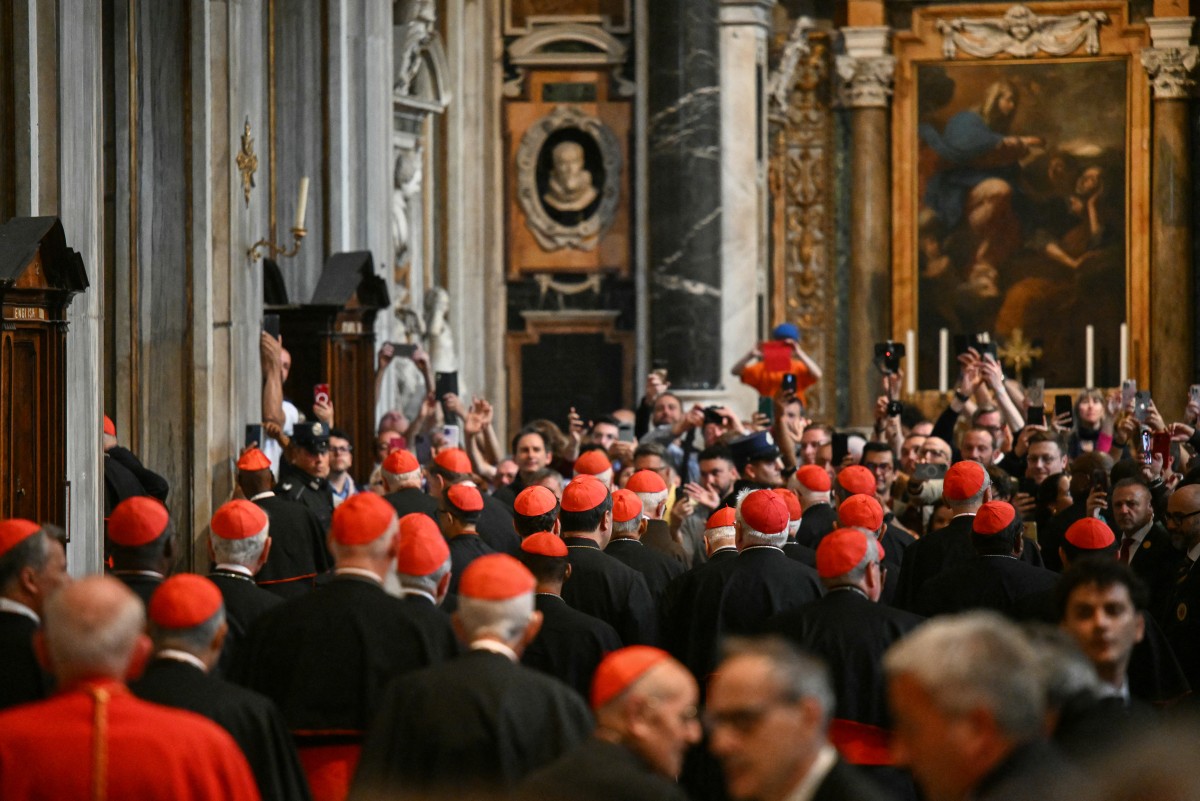
The conclave, which in the coming weeks must choose the successor to Pope Francis, will strictly follow a precise protocol refined over centuries.
The 135 cardinal electors, all under the age of 80, will cast their votes four times a day — except on the first day — until one candidate secures a two-thirds majority. The result will be announced to the world through the burning of the ballots with a chemical that produces the eagerly awaited white smoke, accompanied by the traditional cry of “Habemus Papam.”
The start date for the conclave could be announced today, as the cardinals are set to hold their fifth meeting since the pope’s passing. Luxembourg Cardinal Jean-Claude Hollerich suggested it could begin on May 5 or 6, following the traditional nine days of mourning. According to German Cardinal Reinhard Marx, the conclave could last only “a few days.”
Although the late Argentine pontiff appointed the majority of the cardinal electors, this does not necessarily ensure the selection of a like-minded successor. Francis’ leadership style differed significantly from that of his predecessor, Benedict XVI, a German theologian who was less fond of large public gatherings. It also marked a contrast with the popular Polish pope, John Paul II.
The Argentine Jesuit’s reformist papacy drew strong criticism from more conservative sectors of the Church, who are hoping for a doctrinally focused shift. His tenure was marked by efforts to combat clerical sexual abuse, elevate the role of women and laypeople, and advocate for the poor and migrants, among other causes.
International
Spain’s PM calls for calm and patience amid ongoing blackout
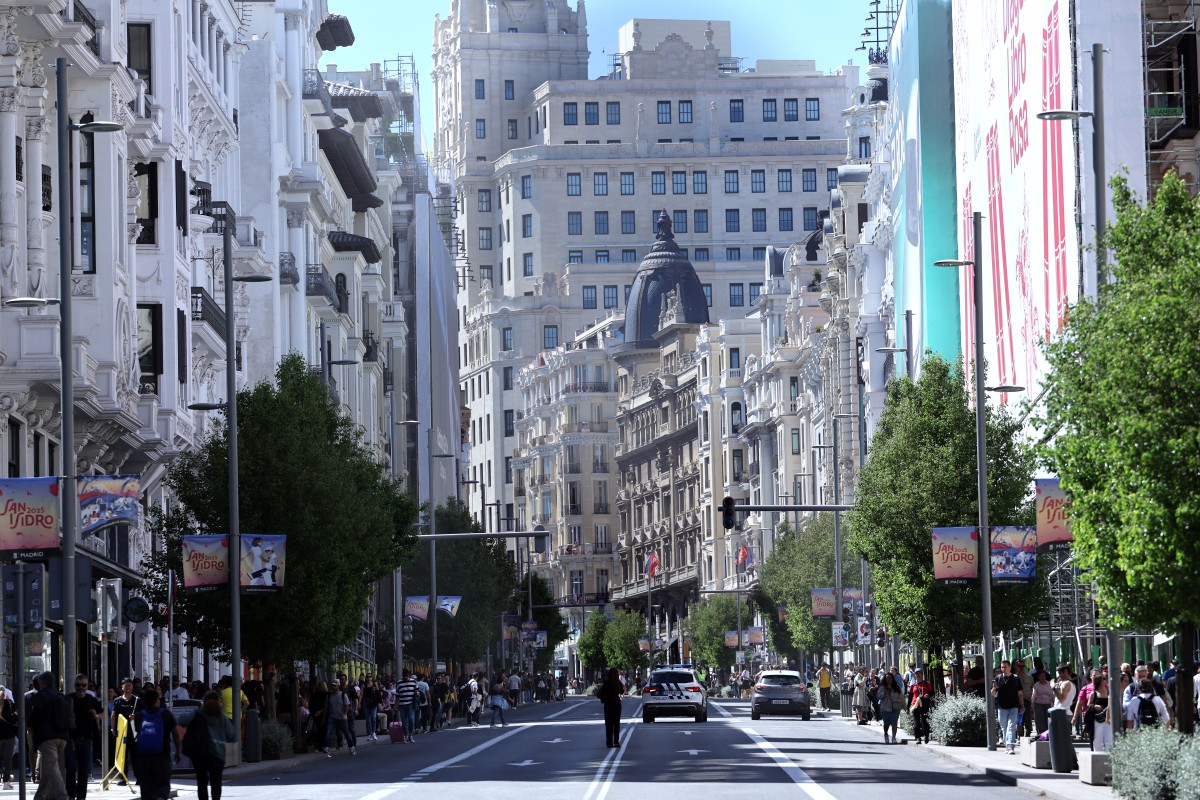
Spanish Prime Minister Pedro Sánchez said Monday evening he hoped the electric service would be fully restored across Spain “soon,” while urging the public to act with “responsibility and civility” amid the blackout that has affected the Iberian Peninsula since midday.
Sánchez explained that the outage was triggered by “a strong fluctuation (…) in the European power system, which led to a widespread supply interruption across the Iberian Peninsula and some areas of southern France.”
After more than six hours without power, “service has been restored in several northern and southern territories” of the Iberian Peninsula, Sánchez said, adding that “hydroelectric power plants across the country have been reactivated, which should allow us to fully restore electricity in Spain soon.”
“I call on citizens to cooperate with the authorities, to act responsibly and civilly, as we have done in past crises,” Sánchez urged, addressing the chaos unfolding in the streets, with people left without phones, metro services, or trains.
The Prime Minister also asked people to “minimize travel,” “avoid spreading unverified information,” rely solely on official sources for updates, and make “responsible use of mobile phones” by keeping calls brief.
“There are no security concerns,” Sánchez stressed, and “our hospital system is functioning properly.”
International
Madrid carries out 286 elevator rescues amid massive blackout
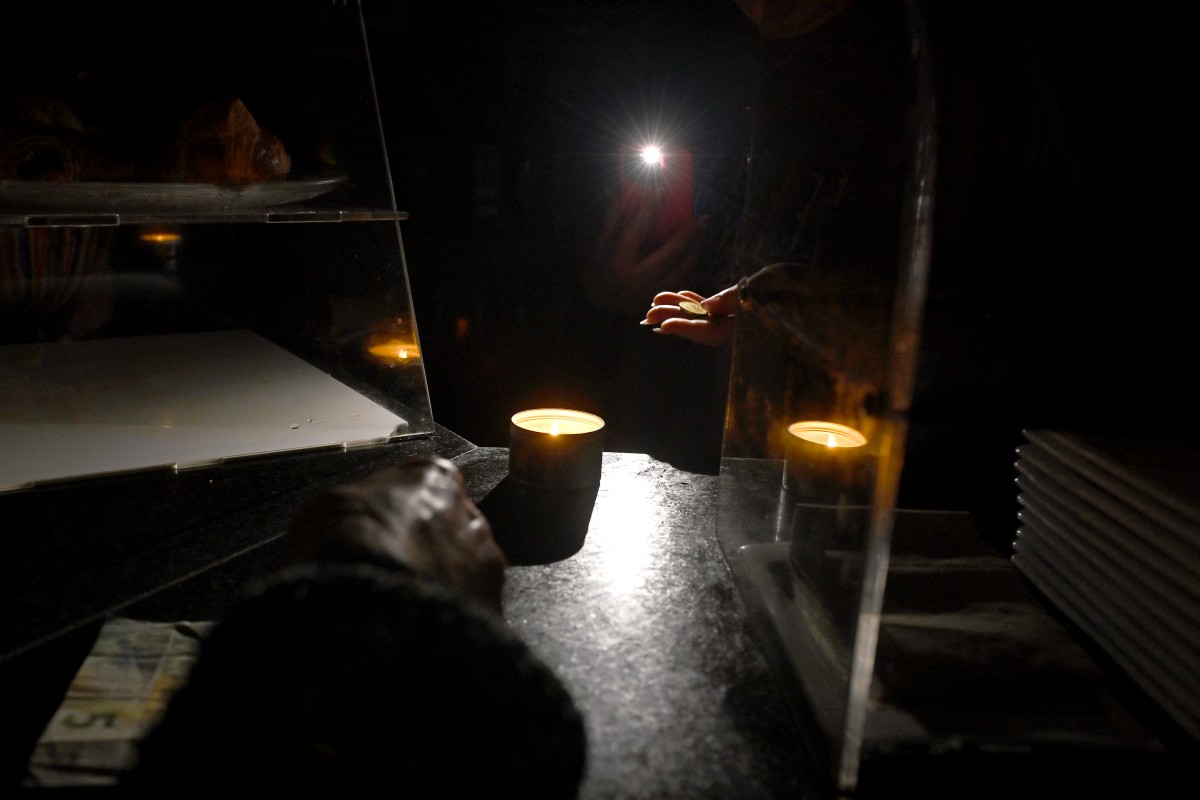
Emergency services carried out 286 rescue operations to free people trapped in elevators in Madrid following a blackout that has been affecting the Iberian Peninsula since midday Monday, the president of the Madrid region reported.
“What we are dealing with most frequently right now are cases of people trapped in elevators,” said Madrid regional government leader Isabel Díaz Ayuso in an interview with Antena 3. She added that Madrid’s extensive metro system, which transports around two million people daily, was evacuated “without incident.”
One man posted a video on social media saying he had been trapped in an elevator without phone service for over half an hour due to the power outage.
“By banging on the door and shouting, a neighbor heard me and called the police,” he explained, noting that it took officers about 30 minutes to free him.
Spain and Portugal share a highly integrated energy network that operates as an “energy island,” connected to the rest of Europe by only a small number of cross-border interconnections with France.
-

 International4 days ago
International4 days ago“A dignified life” for migrants, the plea in Panama in memory of Pope Francis
-

 International4 days ago
International4 days agoThe Arab League supports Hamas handing over control of Gaza and weapons to the Palestinian Authority
-

 International4 days ago
International4 days agoThe Pope’s funeral procession through the center of Rome worries the Italian authorities
-

 International4 days ago
International4 days agoA magnitude 6 earthquake shakes the province of Esmeraldas in Ecuador, bordering Colombia
-

 International4 days ago
International4 days agoA Russian general dies in the explosion of a car bomb near Moscow
-

 International3 days ago
International3 days agoCardinals seek a “unifier” as they prepare for conclave to elect new pope
-

 International3 days ago
International3 days agoTrump and Zelensky hold “very productive” meeting in Rome during Pope’s funeral
-

 International4 days ago
International4 days agoMigrants want to stay on Mexico’s southern border because of Sheinbaum’s industrial plan
-

 International4 days ago
International4 days agoFrom email to marriage: the day Pope Francis married a Uruguayan couple
-

 International4 days ago
International4 days agoA group of the poor and a delegation of migrants will participate in the funeral and burial of the pope on Saturday
-

 International4 days ago
International4 days agoAbout 150,000 people say goodbye to the pope in St. Peter’s Basilica before the funeral
-

 International4 days ago
International4 days agoPutin and Witkoff address possible direct negotiations between Russia and Ukraine
-

 International5 days ago
International5 days agoThe pope’s doctor reveals his last moments of life and that he wanted to “die at home”
-

 International4 days ago
International4 days agoPope Francis’ funeral procession will be a six-kilometer journey through the heart of Rome
-
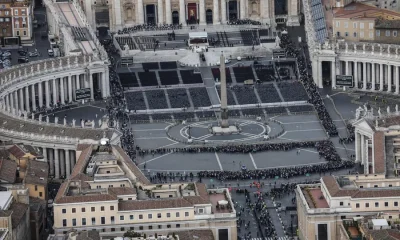
 International4 days ago
International4 days agoPreparations for Pope Francis’ funeral, in figures
-
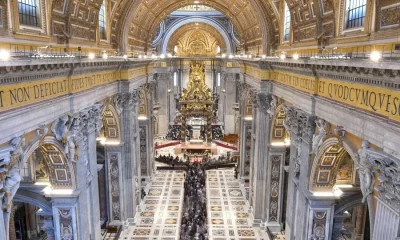
 International4 days ago
International4 days agoThe protocol for the funeral of Pope Francis, a delicate diplomatic work
-

 International2 days ago
International2 days agoNine dead after driver runs over crowd at Vancouver Street Festival
-

 International2 days ago
International2 days agoKing Charles III expresses deep sadness after Vancouver festival tragedy that left nine dead
-

 International12 hours ago
International12 hours agoMexican activist who exposed pornography ring found dead in Veracruz
-
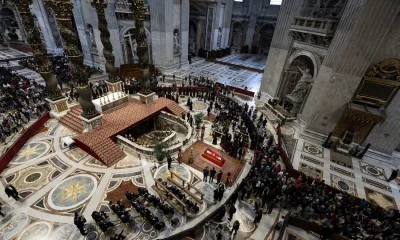
 International4 days ago
International4 days agoSocial networks, protagonists in the farewell to Pope Francis for ‘selfies’ in front of his coffin
-
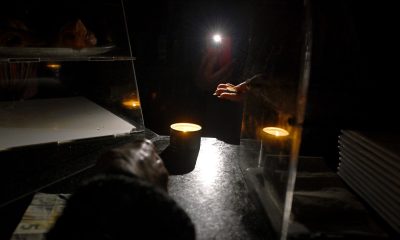
 International12 hours ago
International12 hours agoMadrid carries out 286 elevator rescues amid massive blackout
-
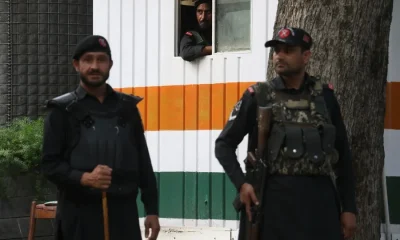
 International4 days ago
International4 days agoIndia asks to identify Pakistani citizens in the country to ensure their departure before Sunday
-
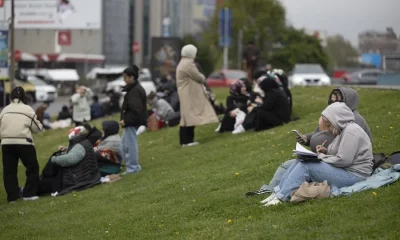
 International4 days ago
International4 days agoA 4.5 magnitude earthquake shakes the coast of the Aegean Sea in Turkey without leaving injuries or damage
-
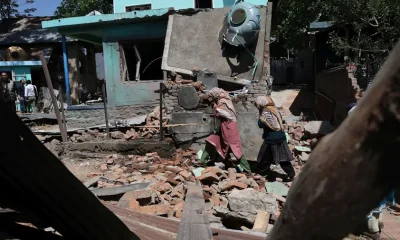
 International4 days ago
International4 days agoIndia destroys the homes of the alleged attackers in Kashmir with excavators
-

 International12 hours ago
International12 hours agoSpain’s PM calls for calm and patience amid ongoing blackout
-
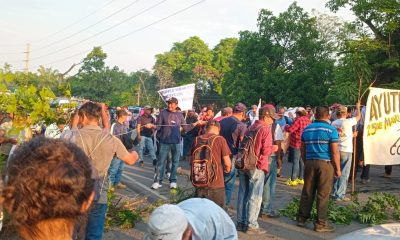
 Central America12 hours ago
Central America12 hours agoGuatemala sees road blockades amid protests against lawmaker pay hikes
-
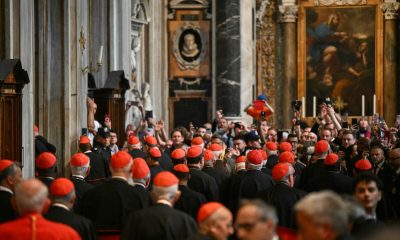
 International12 hours ago
International12 hours agoConclave to choose pope Francis’ successor could begin in early may















